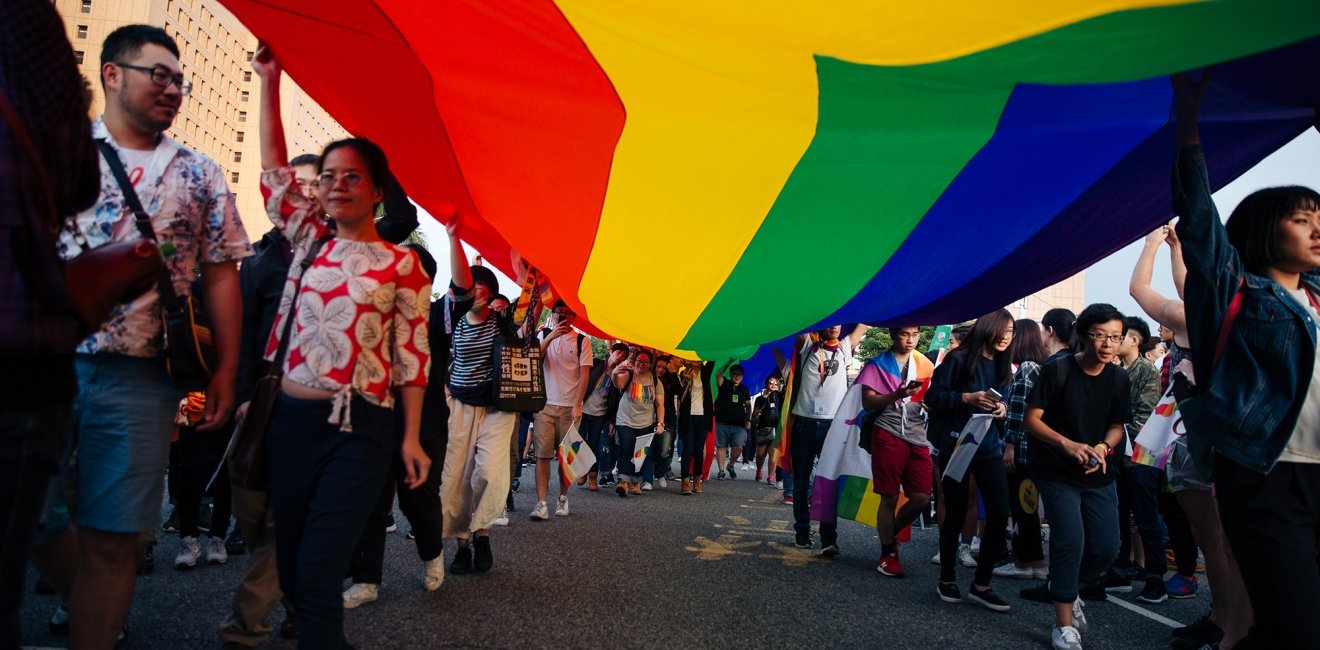
A blog of the Indo-Pacific Program
As the world celebrated Pride Month, the Wilson Center's Asia Program invited panelists to analyze regional histories of activism, current battles, and the significance of the international U.S. presence in advancing LGBTQ+ protections. The session opened by spotlighting Taiwan and its journey to achieving marriage equality. Future work to be done includes implementing greater adoption rights for same-sex couples and promoting social understanding of gender identity beyond the binary.
Japan, meanwhile, still struggles to secure protective legislation at the national level. Strong traditional social values have inhibited progress. Japanese society values conformity over individuality, with particular attention paid to the public face. Although individuals may not outwardly express homophobia, the stigma still pervades the private sphere. In this realm, households are the smallest unit of society—the individual is but a reflection of the family. Being publicly out “transfers” the label of queerness beyond the individual to the entire family—being known as a “queer household” is a marker of difference most want to avoid. Achieving lasting change requires securing legal rights in the public sphere while also combatting the proliferation of “closet culture” in the private sphere. More recent pushes for change have been unsuccessful, subsumed by discourse on the summer Olympics instead.
Whereas Japan’s resistance to change is characterized by their social culture, South Korea’s is a product of strong political rhetoric. Leading the pushback are conservative Christians, who have attempted to politicize LGBTQ+ rights as a compromise of national security by linking it with radical Islam and terrorism. On the other side of the aisle, liberals are also hesitant to openly welcome the queer community to their constituent bloc. Though neither is willing to officially adopt LGBTQ+ rights into their platform, Seoul has nonetheless been on an upward trajectory for public awareness and activism. A recent petition, garnering over 100,000 signatures, will force lawmakers to tackle the question of enacting immediate anti-discrimination legislation.
The U.S.’s presence in the Indo-Pacific can play an important role in empowering local activists and organizations. Visibility of underrepresented communities among U.S. troops is oftentimes enough to bring the subject to the table in diplomatic endeavors, a step in the right direction for the Biden administration’s goal of achieving anti-discriminatory policies in allied countries. Likewise, diplomatic missions can engage with and enable local LGBTQ+ grassroots organizations to better pursue their missions. The U.S. also has its own work to do: as the military reconciles its legacy of anti-queer bias with an increasing transgender population, it has begun opening spaces to reassess itself and restructure its policies. Creating a better world for LGBTQ+ communities will require establishing and leveraging transnational networks of allyship and activism, coupled with increased levels of accountability.
Follow the Asia Program on Twitter @AsiaProgram. or join us on Facebook.
Follow the Korea Center on Twitter @Korea_Center or on Instagram at @wilsoncenterkorea.
The views expressed are the author's alone, and do not represent the views of the U.S. Government or the Wilson Center. Copyright 2020, Asia Program. All rights reserved.
Author

Indo-Pacific Program
The Indo-Pacific Program promotes policy debate and intellectual discussions on US interests in the Asia-Pacific as well as political, economic, security, and social issues relating to the world’s most populous and economically dynamic region. Read more


Hyundai Motor-Korea Foundation Center for Korean History and Public Policy
The Center for Korean History and Public Policy was established in 2015 with the generous support of the Hyundai Motor Company and the Korea Foundation to provide a coherent, long-term platform for improving historical understanding of Korea and informing the public policy debate on the Korean peninsula in the United States and beyond. Read more





